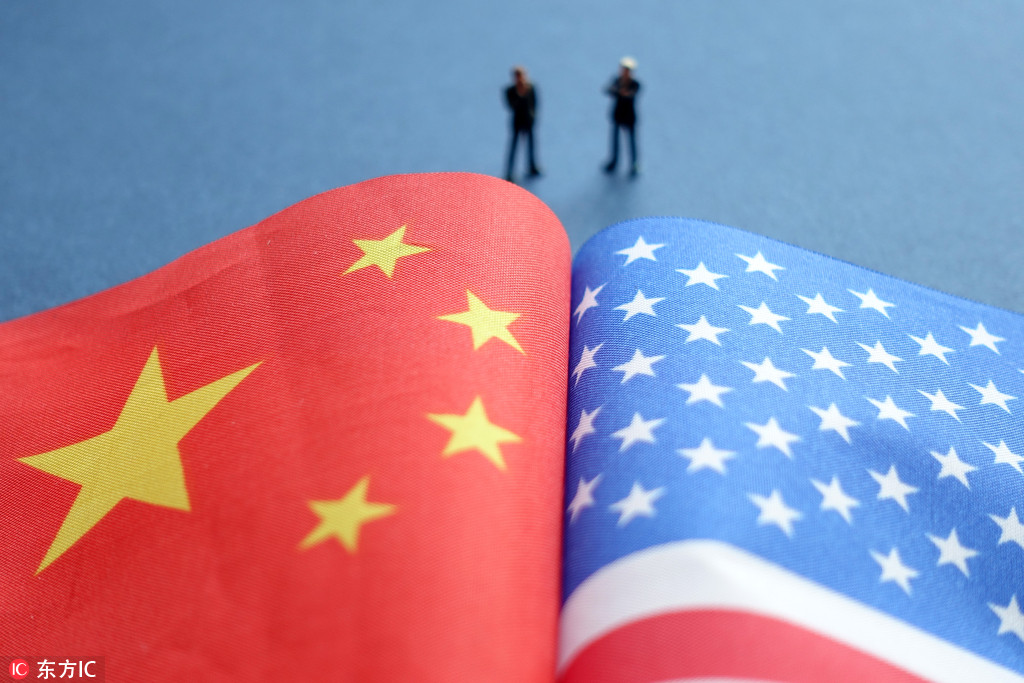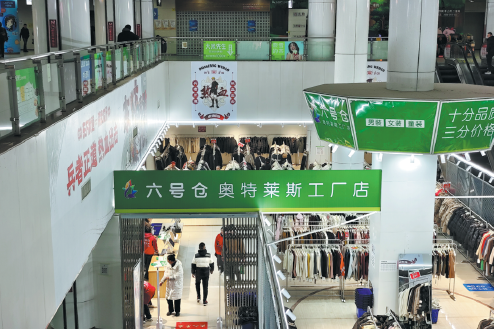US industry associations buoyed by negotiations


What both China and the United States called "substantial progress" in the latest round of trade talks and the ensuing delay in tariff increases have fueled hope that certainty will return in business, and the world's top two economies will resolve their trade disputes sooner.
"The decision to avoid a tariff hike is a positive development, and we encourage the administration to build on this momentum and reach a resolution that will eliminate uncertainty for American businesses and consumers," Matthew Shay, president and CEO of the National Retail Federation, said in a statement.
The federation, touted as the world's largest retail trade association, made the statement immediately after the US administration delayed tariff increases on a large number of Chinese goods, which had been set to take effect on Friday.
Negotiations led by Chinese Vice-Premier Liu He and US Trade Representative Robert Lighthizer from Feb 21 through Sunday yielded "substantial progress" on specific issues such as technology transfers, protection of intellectual property rights, nontariff barriers, the services industry, agriculture and exchange rates, according to a statement from the Chinese delegation.
US President Donald Trump used the same descriptive phrase and said he would delay an increase in US tariffs on $200 billion of Chinese goods. Earlier, the US administration had threatened to raise tariffs to 25 percent from 10 percent if the two sides failed to reach a trade agreement before Friday.
Eric Joseph Holcomb, governor of Indiana, a state whose agriculture depends heavily on exports, said he welcomed the progress.
"Every day I wake up and talk about taking Indiana to the world and bringing the world back to Indiana. That includes obviously one of the biggest economies, China, and ours, America," he said. "So I'm looking forward to the days of predictability and certainty and stability on the trade front and optimistic we'll be there soon."
The Business Roundtable, an association of chief executive officers of leading US companies, said in a September survey that tariffs and future trade tension were making CEOs scale back investment plans for the next six months.
The National Marine Manufacturers Association, whose members depend on hundreds of marine-related parts and materials that have been impacted by the tariffs, also said in a release that it welcomed the development and encouraged both nations to "continue to work toward a comprehensive agreement" on all trade issues.
Representatives of the US soybean industry, which usually sees nearly one in every three rows of its harvested beans exported to China, had mixed feelings.
"We are glad that talks between these two countries will continue without the tariff hike previously expected at the 90-day deadline later this week, but we need resolution and are discouraged that it's still hard to see a tangible end in sight," Davie Stephens, president of the American Soybean Association, said in a release on Tuesday.
Stephens, also a soybean grower from Clinton, Kentucky, said growers continue to urge the US administration to rescind the tariffs and instead "make soybeans a part of reducing our trade deficit" with China.
Tariffs Hurt the Heartland, a nationwide campaign opposing tariffs and supported by more than 150 trade associations, sent a letter to the House Ways and Means Committee on Monday that was accompanied by at least 500 stories of how tariffs are hurting Americans ahead of Trade Representative Lighthizer's scheduled testimony before the committee next week.
Tariffs Hurt the Heartland said in a release this month that tariffs imposed by the administration cost US businesses $2.7 billion in November 2018 alone.
David Firestein, president and CEO of the George H.W. Bush Foundation for US-China Relations, said, "The notion of having tariffs in place that actually punish American companies, and also punish American consumers, and ultimately generate essentially a tax increase on the American people, is just not an idea that makes a lot of sense to most people in business."
Cai Chunying in Washington and Yinmeng Liu in Los Angeles contributed to this story.



































